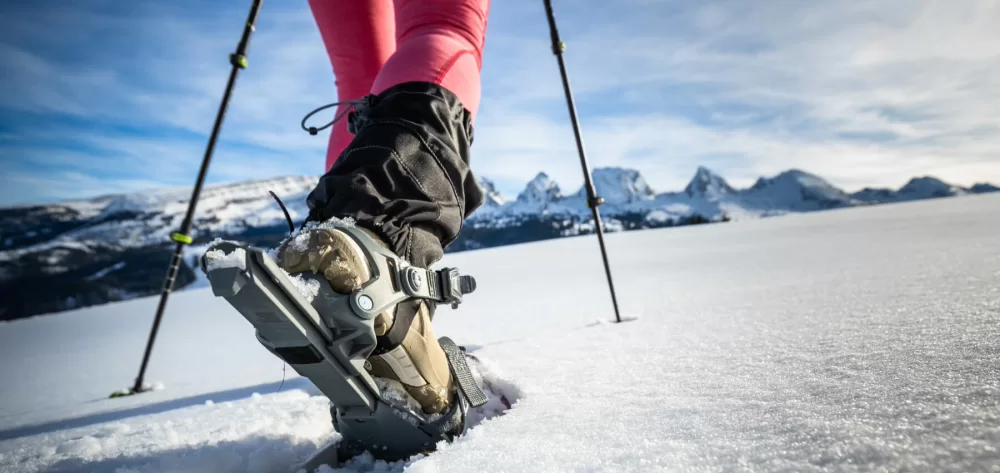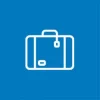Switzerland offers endless possibilities for hikers – from the chilled to the extreme. But like most things in Switzerland, hiking can get very expensive. Here, moneyland.ch offers basic tips for getting the most out of hiking in Switzerland.
1. Plan ahead to take advantage of deals
While spontaneity has its moments, planning hiking trips ahead of time gives you an edge in that you have time to find deals on accommodation, equipment, and transportation. It also gives you time to create a contingency plan for unexpected circumstances (bad weather, for example). Planning ahead instead of waiting till the last minute is one of the best ways to save money.
2. Consider the worst-case scenarios
The sheer wildness of the mountains is a big part of their charm, but it brings with it certain risks. The chances of getting injured while hiking or ending up stuck in the mountains due to bad weather, for example, are relatively high, and the costs of search and rescue operations are even higher.
Swiss non-profit search and rescue foundation Rega provides search and rescue coverage in Switzerland, and repatriation to Switzerland from foreign countries. With a low annual contribution of just 40 francs, Rega membership can save you huge amounts of money if you ever need to be rescued.
It is worth checking whether your existing supplemental health insurance and travel insurance policies include search and rescue coverage. If they do, then there may be little point in getting additional insurance. This is especially true if you only hike occasionally. If you are employed by a Swiss company, then your employer’s accident insurance fully covers the cost of emergency medical evacuations, but only when you are injured in an accident (other rescue operations are not covered).
3. Avoid illegal camping
Pitching a tent and spending the night in the wild is popular with many hikers, but not all cantons allow freestyle camping on public property. Even in cantons which do allow freestyle camping, you are generally forbidden to camp in nature conservation areas, national parks, federal hunting zones, and game preserves. Illegal camping can land you fines of anywhere from hundreds to thousands of francs. Camping on public property is only allowed in these cantons:
- Aargau (in a vehicle in public parking spaces, for one night).
- Jura (with a permit from the municipality).
- Luzern (except where expressly forbidden).
- Obwalden (for one night, as long as public or private interests are not infringed upon).
- Zurich (in forests, for one night).
But there are exceptions to the rule: Nearly all cantons allow you to camp above the forest line for one night, as long as you pack up your tent first thing in the morning. It is also worth noting that much of the land in Switzerland – including in the mountains – is privately owned. In all cantons, you are allowed to camp on private land if you get the landowner’s permission. Some landowners make camping spots available to freestyle campers in exchange for payment. You can find many of these offers on websites like MYFARM and Nomady.
Switzerland also hosts hundreds of campgrounds, many of which are in excellent hiking spots. Mountain campgrounds in particular can be relatively affordable, and provide security and basic facilities.
4. Cut the costs of cable cars and other transportation
Many hikes begin with a ride on a cable car, funicular, or cog railway, and these are often expensive. A relatively simple way to reduce the cost is to use Reka money to pay (the majority of cable car operators accept it). If you hike a lot and do most of your hiking in one area, getting a seasonal or annual pass (like the Graubünden Card) can work out cheaper than paying for numerous trips individually. Classified websites like Anibis and Tutti are worth taking a look at, as private sellers often offer unused coupons or tickets well below standard prices.
If you use public transportation to get to hiking spots, look into whether your municipality offers the municipal day passes that are valid for all of Switzerland. These can cost much less than a standard return trip, and allow for more spontaneity as you can travel anywhere you want to for an entire day. The catch with these is that you have to specify a date, so planning in advance is crucial. Some retailers also run occasional specials for day passes in partnership with the SBB/CFF.
For single trips, you can get cheaper ticket prices by booking online. Regional passes like the ErlebnisCard which gives you unlimited use of public transportation across some of Switzerland’s most interesting hiking regions can make sense in some cases. Here too, advance planning is a must because tickets are bound to a specific passenger and date.
Having a car is beneficial for certain hikes. If you do not own your own car, you can rent cars from private individuals cheaply using platforms like 2em and Gomore. For conventional car rentals, you can save money by following these simple rental car saving tips.
5. Save on equipment
Swiss stores offer a large variety of quality hiking and camping gear, but it is often very expensive. Unless the hiking you do is very demanding (glacier trekking or mountain climbing, for example), you can generally get by just fine with budget equipment. Whether you opt for quality or budget, taking time to compare prices across different stores can save you a lot of money. Prices at some online stores can be compared using websites like toppreise.ch. You can also look up prices for items you want on the websites of popular outdoor shops. Seasonal shopping – buying the sales after the winter and summer seasons – is another way to get more for less.
For those on a tight budget, Switzerland has a huge secondary market for outdoor equipment. If you are willing to buy second-hand, everything from high-end mountaineering jackets to snowshoes, harnesses and camping gear can be bought for half the new price, or less. Web platforms like Anibis, Ricardo, and Tutti are a good first stop. Second-hand shops are also worth checking out. If there is something which you only need for a one-off hike or activity, then renting from private individuals (on sharing economy platforms like Sharely, for example) can work out cheaper than buying.
6. Explore alternative accommodation
The SAC operates numerous alpine lodges, ranging from comfortable hostels to unmanned cabins. SAC club members get discounted prices on lodging. A review of 25 SAC clubs by moneyland.ch showed an average annual membership fee of 125 francs. A random sampling of 30 SAC lodges showed that SAC members pay 12 francs less per night, on average. So an SAC membership saves you money from around 11 nights per year.
Affordable mountain accommodations can also be found on platforms like Sentiero and Airbnb.
Hotels are a convenient and comfortable form of accommodation – particularly during the cold months of the year when camping is more difficult – and there are simple ways to save on hotel stays in Switzerland.
If you have a tight budget or enjoy meeting new people, it is worth noting that home sharing platforms like Couchsurfing, Trustroots, and Bewelcome include a fair number of hosts across Switzerland. Members of these online communities host each other for free, just for the sheer joy of making new social contacts. This provides a fun way to make new friends while staying in locations close to your chosen hiking trails.
7. Expand your skills set for less
Learning skills like glacier trekking, abseiling, rock climbing or even paragliding can add whole new dimensions to your mountain hikes. So can less-physically-demanding skills like geology, botany, and birding. If just catching the views no longer motivates you, consider joining one of Switzerland’s numerous clubs and taking part in training events. Private instructors and companies also offer courses, some of which can be found on sites like Meetup, and it is worth comparing the prices with those charged by clubs.
The many tutorials on video streaming platforms like Youtube and Dailymotion provide a free alternative to paid courses (at least for the theory portion of skills).
If you are studying at a Swiss University, it is worth noting that student sport associations (like the ASVZ in the canton of Zurich) offer courses in hiking-related skills like bouldering, climbing, and bushcraft.
8. Find an experienced hiking buddy
A simple way to expand your outdoor skills without spending a lot of money on courses is to find an experienced hiking buddy or team which you can learn from on the go. The easiest way to find hiking buddies is through hiking groups on Facebook and other social media. Platforms like Gemeinsamerleben, Meetup and Eventbrite are a good place to make contact with hiking clubs and groups. If you are willing to pay an annual fee, joining your local SAC chapter will put you in contact with many experienced hikers. Membership fees range from around 100 to 200 francs per year for an individual and around 150 to 300 francs per year for a family, depending on the SAC chapter.
9. Mix pleasure with work for cheaper mountain holidays
Many alpine lodges take on additional personnel during the main hiking and climbing seasons. If you like the idea of living where you hike and can bear the idea of working during a holiday or sabbatical, these alpine jobs might just be your mountain dream. The job listings on Sentiero and the SAC’s website are good places to start. If money is not an issue, take a look at websites like helpx.net, workaway.info, and worldpackers.com to connect with alpine hosts which offer room and board in exchange for your help with various projects.
10. Carry cash
Although Twint is becoming increasingly accepted in rural parts of Switzerland, anyone who treads off the beaten tourist path will likely encounter small dining establishments, farmstands, and even some cable car operators and lodges which only accept Swiss banknotes and coins. Carrying some cash with you when you hike will help you avoid disappointments.
11. Bring your own food
Buying food at alpine dining establishments is generally expensive, and the selection is often small. Bringing your own food is a simple way to save money and enjoy meals which match your diet. Following these saving tips for grocery shopping in Switzerland will help you stay well fed on your hike without breaking the bank.
More on this topic:
Tips for getting cheaper hotel stays
Simple tips for cheaper skiing in Switzerland
Financial tips for camping in Switzerland
Saving tips for public transportation in Switzerland
Extreme sports insurance in Switzerland explained
Free activities for kids in Switzerland

 Deal of the Day
Deal of the Day 







